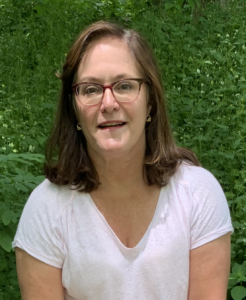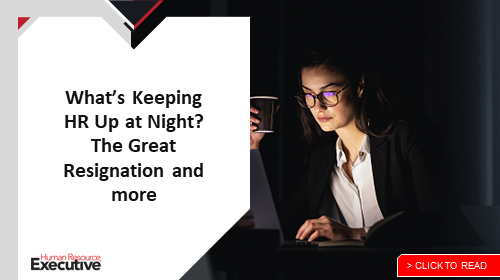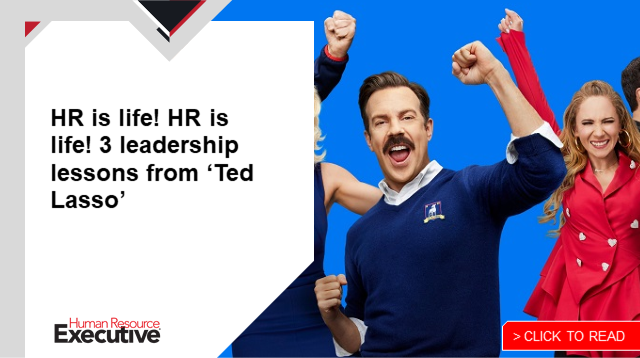Jennifer Young never planned on entering the HR profession. Back in the 1980s, she began what would be a 16-year career as a commercial lender at TD Bank in Canada, serving businesses in areas ranging from agriculture to light industry, and then moved to Toronto to join the bank’s corporate accounts group.
But life events began steering her in a different direction. For the past 17 years, she has held numerous HR roles at the bank, including senior manager of talent acquisition, before assuming her current position: Almost three years ago, Young was named executive vice president, head of HR at TD Bank and TD Securities, where she oversees the HR needs of roughly 30,000 employees.
HRE spoke with Young about the challenges she faces in her HR role, especially during COVID, the adjustments she made to succeed and where she believes the HR profession is headed.
HRE: Why did you transition from commercial lending to HR?

Young: I never planned to go into HR. When I had twins [25 years ago], they were born very early and had some challenges. So, when it was time for me to come back to work, I didn’t want to come back full time. Back then, it wasn’t possible for me to work part-time in the area I worked in. But HR [asked], would I be interested in doing recruitment? It wanted to ramp up its diversity efforts and said it would be great to have a senior female kind of take the reins in the recruitment space. They didn’t care when or where I worked. I said, “Sure, what the heck? Let’s try something different.” I fell into this and loved it. I didn’t expect that.
HRE: What adjustments did you have to make to tackle your new responsibilities?
Young: It was hugely important for me to experience the U.S. I didn’t have a deep enough understanding of it, particularly at a time relative to all the social and civil unrest issues during a political election. As much as you think Canada and the U.S. are similar, there are huge differences. I had to understand how voting worked, all the different elements of government affairs and the regulatory environment.
HRE: I imagine COVID-19 offered some pretty tough lessons.
Young: I was so taken back by the volume of decisions that I was being asked to make. Because there was no playbook, the [bank’s] leaders were saying, “OK, HR, make this call.” But the biggest thing I learned was the value of our caring culture. When we started the PPP government loan program to support small business, people jumped in, saying, “If I can’t work full time at my branch, I’ll jump in and do that.” That was the power of our culture. It was phenomenal. The other piece was we could never communicate enough. The level of transparency and granularity that employees were looking for was really quite something.
Read more Insights from a CHRO here.
HRE: Considering the pandemic’s massive disruption to people’s lives and their jobs, what employee skills or attributes have become most valued?
 Young: The biggest thing I will always focus on is intellectual curiosity. Learn as much as you can about a function you’re going to support. If you’re interested in being an HR business partner, learn how it makes money, what makes it tick, where you can add value and understand the market and its competitors. I will always look for that and push for energy, drive and challenging the status quo. It’s a mindset of being super comfortable driving change and transformation.
Young: The biggest thing I will always focus on is intellectual curiosity. Learn as much as you can about a function you’re going to support. If you’re interested in being an HR business partner, learn how it makes money, what makes it tick, where you can add value and understand the market and its competitors. I will always look for that and push for energy, drive and challenging the status quo. It’s a mindset of being super comfortable driving change and transformation.
HRE: What’s left in your career to conquer?
Young: Pensions and benefits is a big area for me to continue to develop in–really understanding how to put those programs in place. We also need to continue to build capabilities in [driving] far more diversely rich workforces from every angle.
See also: Why employees are redefining what work will look like in 2022
HRE: How do you expect your job to change in the years ahead? What changes are in store for HR?
 Young: The world is going to change the type of intelligence I use in my job today; [it] will be so much more grounded in pure data three to five years down the road. I also think HR will be more deeply embedded into businesses versus being a support function. This whole level of business acumen will continue to ratchet up because businesses are making money in so many different ways now than they did 10 to 20 years ago.
Young: The world is going to change the type of intelligence I use in my job today; [it] will be so much more grounded in pure data three to five years down the road. I also think HR will be more deeply embedded into businesses versus being a support function. This whole level of business acumen will continue to ratchet up because businesses are making money in so many different ways now than they did 10 to 20 years ago.
HRE: You pride yourself on being an authentic and genuine leader. What else should people know about you?
Young: What you see is what you get. But perhaps the most unique thing about me is that my family is all women. I have a sister and two step-sisters. I have two daughters. My sister has three daughters. During COVID, I also became a Peloton addict, cycling close to 70 miles each week. What’s also important to me is that I love this business. I really enjoy the leaders and hope to stay in this role and add value and grow with my team.

